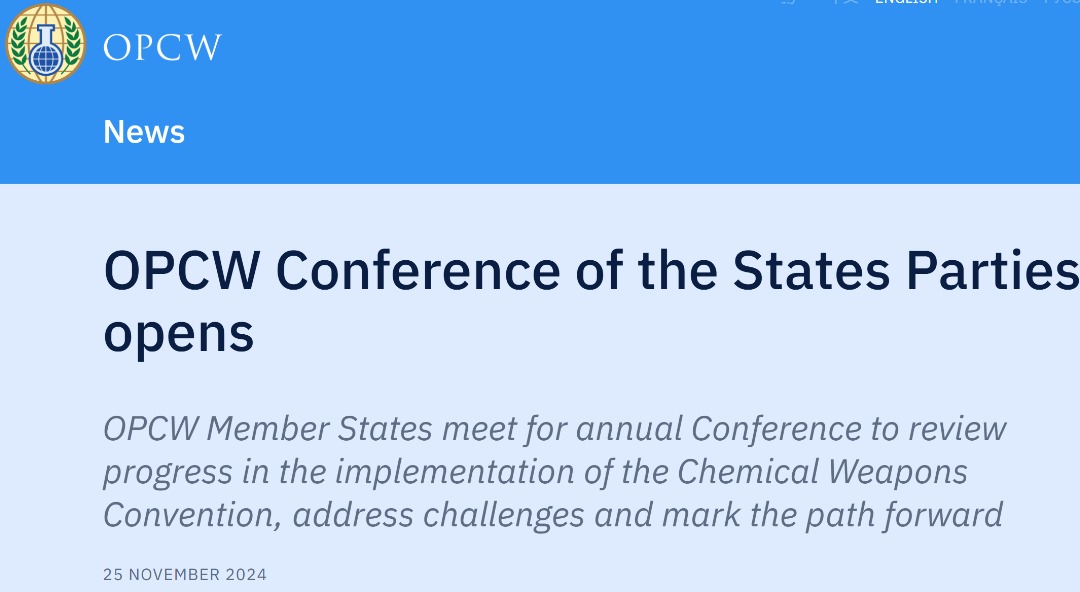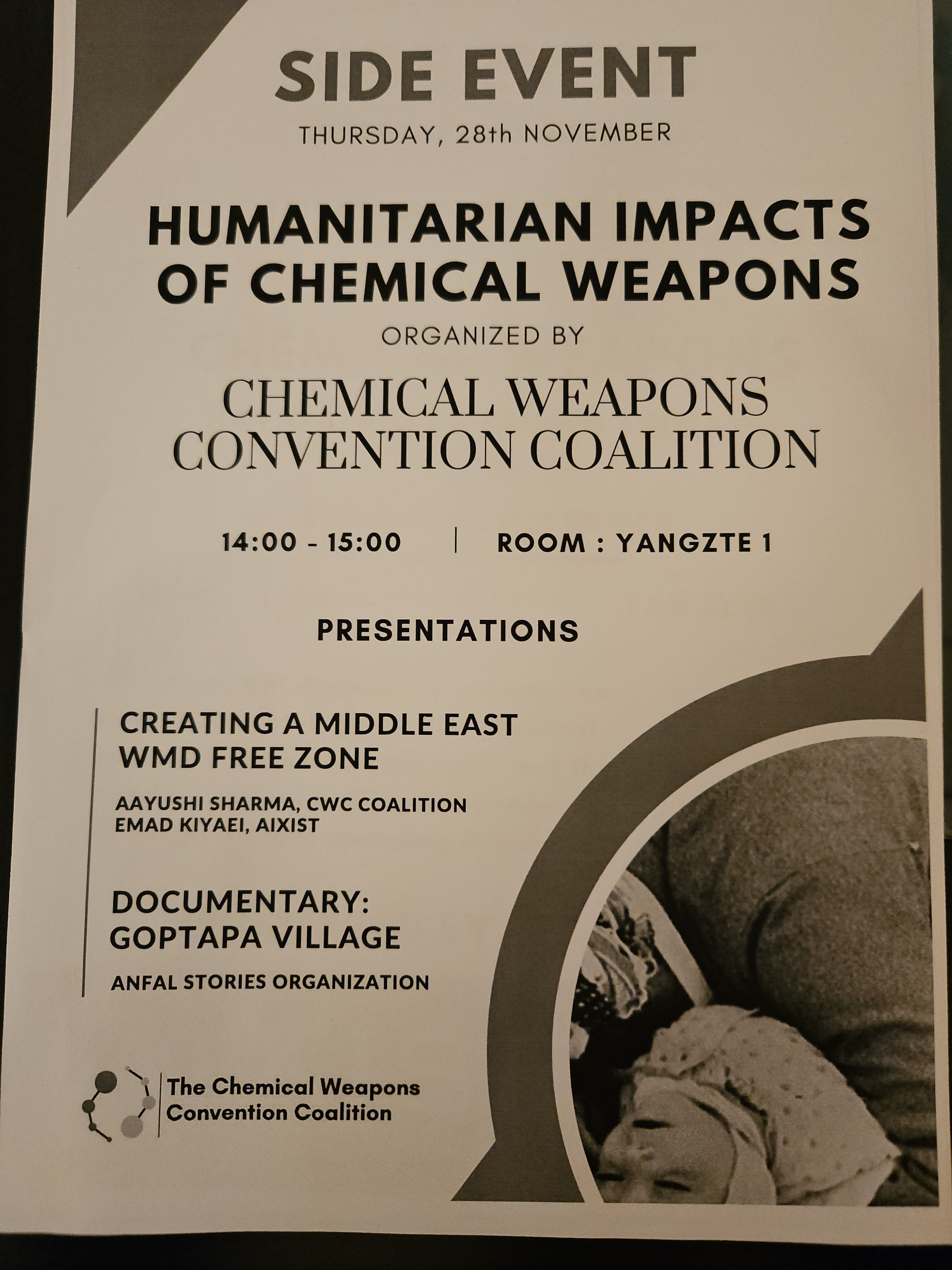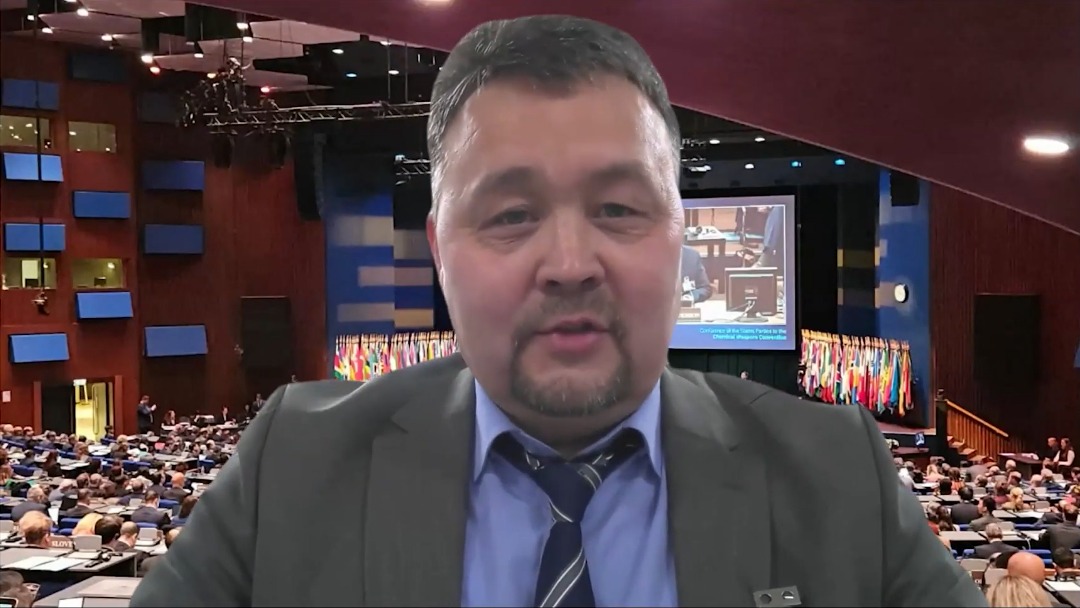
The Center for Non-Proliferation and Export Control (CNEC) took part in the 29th session of the Conference of the States Parties to the Chemical Weapons Convention.
The CNEC, as a non-governmental organization, was selected and invited to participate in the 29th session of the Conference of the States Parties (CSP-29), which was held from 25 to 29 November 2024 at the World Forum building in The Hague, the Netherlands.
“Today’s international environment is particularly complex, characterized by escalating tensions and constant pressure on the global security architecture. More than ever, the responsibility of the Conference of the States Parties to promote and protect the Chemical Weapons Convention is coming to the fore,” said OPCW Director-General Ambassador Fernando Arias at the opening of the Conference.
The main topics for discussion at the Conference were:
– the state of implementation of the Chemical Weapons Convention (CWC);
– eliminating the threat of use of chemical weapons;
-development of science and technology, including new technologies such as artificial intelligence, that impact the implementation of the CWC;
-engagement with the chemical industry and academia to facilitate the implementation of the Convention;
-promoting the peaceful use of chemistry and ensuring the safe production and use of chemicals;
-OPCW Africa Programme;
-promoting the universality of the CWC;
-strengthening institutional governance at the OPCW.
A number of side events on CWC-related topics were held during the Conference.
The Conference was chaired by the Permanent Representative of Bosnia and Herzegovina to the OPCW, H.E. Mr. Almir Sahovic, who took over from the outgoing Chairman, Permanent Representative of Pakistan to the OPCW, H.E. Mr. Sulyuk Mustansar Tarar.
The official OPCW-The Hague Award Ceremony was also held during the Conference. This year, the award was presented to two laureates:
– The National Institute of Criminalistics and Criminology of the National Gendarmerie of Algeria (NICC/NG);
– The Indian Chemical Council (ICC).
A brief overview of the laureates:
NICC/NG is a forensic science institute focused on developing crime-fighting capabilities by integrating scientific methods into forensic and criminal proceedings. In 2024, NICC/NG joined the OPCW’s global network of designated laboratories, strengthening chemical security across the continent and contributing to international non-proliferation efforts. NICC/NG was the first laboratory in Africa to achieve OPCW designated laboratory status since 2006. The Institute has played an important role in facilitating regional capacity building by supporting key initiatives such as CHEMEX Africa in October 2023.
ICC is the chemical industry body recognized for its role in promoting chemical safety, compliance with the Convention, and improving industry-wide safety practices in India. Through initiatives such as the CWC Helpdesks, ICC has improved industry compliance and facilitated efficient electronic filing of chemical declarations. Additionally, ICC’s Nicer Globe initiative has had a significant impact on chemical transportation safety in India by offering real-time monitoring and emergency response capabilities. ICC has undertaken other activities to promote chemical safety and security through its Responsible Care program and the introduction of the RC Safety Code. Their focus on enhancing industry safety and advancing national implementation of the Convention in one of the world’s largest chemical sectors demonstrates an outstanding commitment to responsible industrial governance.
On Wednesday, November 27, the Day of Remembrance for all victims of Chemical Warfare was observed with a minute of silence. The Conference reaffirmed its commitment to the norm against chemical weapons in all circumstances.
During its participation in the conference, the CNEC held a number of bilateral meetings with non-governmental organizations of the participating countries, and also provided online coverage of the conference in a webinar for the Women in Nuclear Central Asia Network (WINCA).








